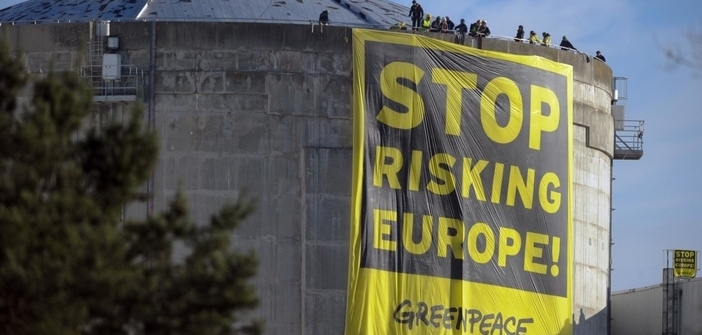France and 32 other European states have been sued by the European Court of Human Rights. They are accused of inaction in the face of climate change. Greenpeace has been denouncing for several years the flaws and lack of ambition of the European Union member states in addressing this global crisis.
Phillipe Spadotto is the coordinator of the Nice branch. He and several associations have been warning for years about the shortcomings of governments. More than revelations and protests, the activist wants to propose solutions to try to save the planet, especially in France.
What do you think about this matter?
I believe it’s a coastal community by the ocean that highlighted the problem. France is not doing what it should because greenhouse gases have continued to increase by 2 to 3% in France. Even a few months ago, despite the lockdown, they didn’t decrease. A few weeks ago, it was a good thing, I believe, moreover, there is also the town of Grande-Synthe that had filed a complaint against the State. [Council of State decision of November 19, 2020]. I think it’s a victory or at least a first step to force France to fulfill its commitments. Other countries aren’t doing it but France must carry this message.
Haven’t you tried to do the same thing in the past?
A while ago, Greenpeace, along with other ecological associations, also sued the State to hold it accountable for its climate inaction [the case of the century]. The idea is to show that France, despite the Paris agreements it signed in 2015, which should have led to a drastic reduction in greenhouse gases, has not taken its responsibilities.
What can Europe do to act effectively for the environment?
There should be a real financial plan for the climate rather than spending crazy amounts to favor the EPR system used by the latest generation French nuclear plants. You know that we are building new EPR reactors that should have been operational since 2012. [EPR of Flamanville]. In 2020, we realize it still doesn’t work. Initially, they were supposed to cost three billion, and now it’s more than 19 billion. Instead of spending in the nuclear sector, which is not the future, it would have been more sensible for each member country to contribute to a common fund. The goal is to have enough money to first address energy-inefficient buildings to improve energy efficiency. Therefore, we need to insulate the uninsulated buildings and base our future on renewable energies.
Do you trust the French recovery plan and the European Green Deal?
If I didn’t believe in it at least a little, I wouldn’t be acting. Greenpeace’s objective is to pressure governments and European bodies to reach a situation where we would have, as progressive Americans say, a real green new deal. That means a real green policy to limit, particularly, greenhouse gases. It’s uncontrollable so we can’t do otherwise. I want to believe in it but we’re waiting to see. When we’re promised something and it’s not done, we act behind the scenes.
Do you think that the “ecocide offense” is a real advancement?
No, we promote, not directly, with other associations the crime of ecocide. The problem is, what are the consequences of the ecocide offense? Fines or purely financial risks. In the current situation, there are risks to local populations, especially those in the South like the Maldives or other territories, which lead to rising sea levels. This has severe consequences like droughts, impacting health and human life, leading to an increase in climate refugees. If there had been a crime of ecocide, we could have acted more. It won’t encourage the largest polluting companies like Total. It’s more of a gadget than anything else.
And the role of local cities and metropolises in all this?
Absolutely, of course, it’s important to know that the main emitters of greenhouse gases are found in metropolises through pollution in city centers but not exclusively. We also have, for example, an ongoing campaign against transportation in Nice, which has caused quite some issues with the mayor of Nice, Christian Estrosi, and the metropolis. The latter is not doing enough. It should implement a low-emission zone. It must really do so, not just sprinkle its policy with a little greening. We must not announce and then do nothing. There’s also the issue of Nice airport. Even if the metropolis and the city of Nice don’t have the competencies, they agreed to expand terminal 2 of the airport. In the end, these are policies that can truly be implemented in the metropolises.
How can we raise awareness of the ecological problem?
Through education, in schools from primary to high school. The curriculum must address this issue. I am a teacher in a high school. In my class in the tenth grade where we cover the topic of global climate change, there are already many students who are involved and active. Young people are active like Greta Thunberg or others who sometimes call for civil disobedience. They directly experience the consequences of climate change and biodiversity loss. Our individual efforts represent 25% of the solution. The remaining three-quarters is a change of paradigm and systemic change. Neoliberalism is responsible for climate disruption.


